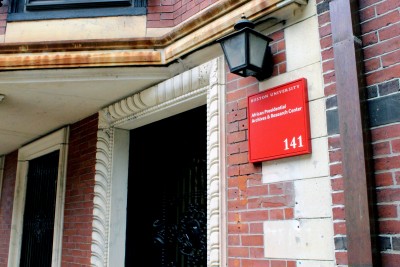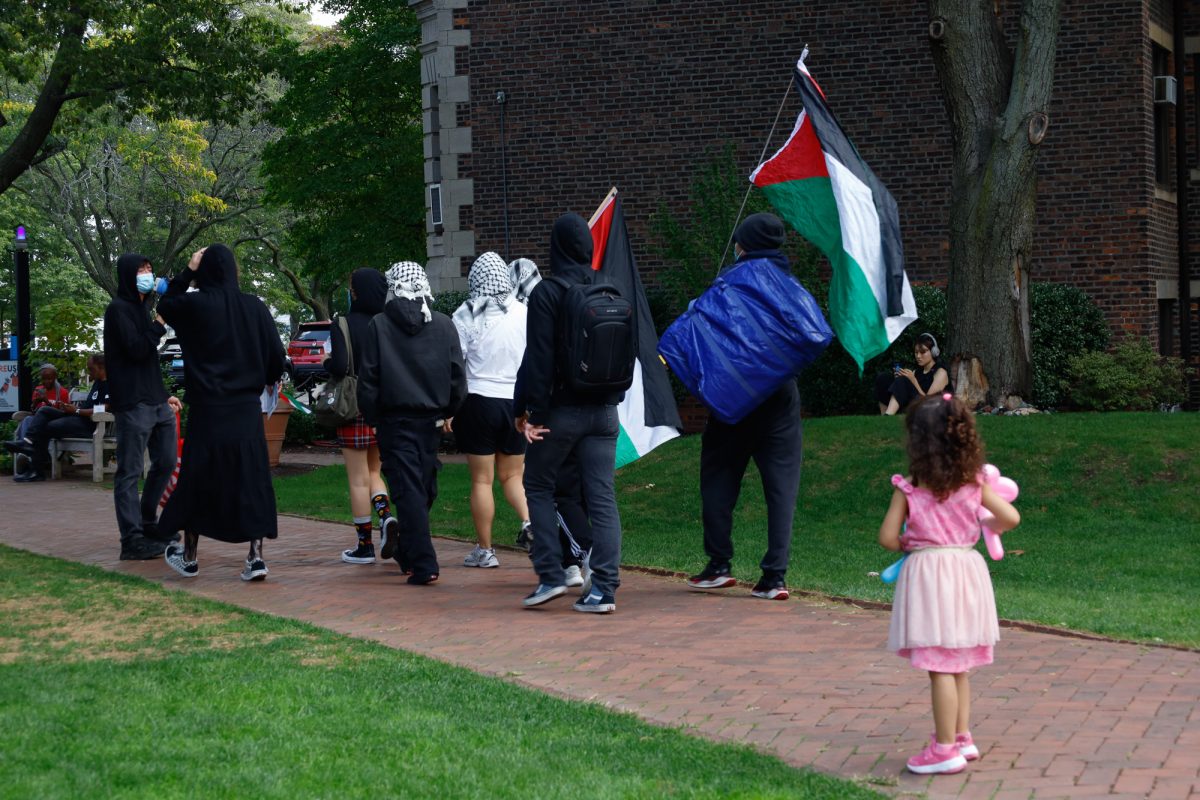
Boston University’s African Presidential Archives and Research Center will close on June 30, but several leaders of the center are questioning the true reasons behind the closing.
The APARC enhances education about Africa and hosts seminars and programs that highlight prominent features and issues of the continent, the center’s website states.
BU spokesman Colin Riley said the APARC will close for monetary reasons and that the university did not “defund” it. Centers like APARC, he said, operate off grants and resources from external entities.
“Approximately one year ago, we met with [APARC Director Charles] Stith to discuss the fact that the APC would not have sufficient funds to operate through the end of the fiscal year that ends June 30, 2015, and that in the absence of the center acquiring those funds, it would have to close,” he said in an email statement.
Riley said center leaders assured several times that more funding would come, which did not happen.
“We did, in fact, provide a subsidy to APC this past year so it would have time and staff to find new sources of external funding,” he said. “We also asked our office of Federal Relations to check with the State Department on funding and to research alternate sources of funding. Unfortunately, no new funds were secured, and we regret that the center is closing as a result.”
Stith, a former United States Ambassador to Tanzania, said he met with Gloria Waters, BU’s associate provost of research, to speak about funding. He said he was told “unless [he] raised enough funds to keep busy,” the Center would be closed.
“When I asked for a specific figure that I had to raise, I was told that was specific as she would be,” he wrote in an email. “In September, I received a letter from Provost Jean Morrison indicating that if I did not have a commitment of $4 million by Oct. 10, [2014], which was basically one month, the university would close the Center. This does not sound like an effort to be helpful to any reasonable person.”
The Center had been receiving sufficient funds from different sources, including the United States Agency for International Development, Stith said.
“To my knowledge, there is no other center in the College of Arts and Sciences that has a $4 million benchmark in order to operate,” he said. “More to the point of the university’s contention that ‘no funding has been forthcoming,’ the reality is that we have executed approximately $100 thousand in programs this year.”
After more than a decade of operating, Stith said, the Center has raised approximately $10 million to operate multiple programs, which has netted almost $1.3 million for BU in finance and administration charges.
“Over this time APC has had 275 Boston University students serve as interns; 129 of which have been awarded conference/travel grants to attend the annual African Presidential Roundtable as official observers,” he said. “Our work has also had an impact globally, starting with our African President in Residence Program. Over the years we have hosted nine democratically retired African heads of state and government.”
Stith said the closing of the Center is only part of a bigger issue on campus.
“The major issue is that African Americans — intellectually, personally and professionally — are undervalued and marginalized in this community,” he said. “I have been talking to [BU President Robert] Brown and his various appointees in the administration about this problem for years. Their response has been two-fold to ignore (and exacerbate) the problem and to try to undermine the work of the Center, despite its enormous contribution to this university.”
Only one member of the BU Board of Trustees is African American, and in 1976, 2.4 percent of BU’s faculty was African American, Stith said. Today, that figure is even less. As of 2011, 2 percent of BU’s full-time faculty was African American.
“What is happening relative to the African Presidential Center is simply a part of a broader pattern,” he said. “While Bob Brown’s spokesman attempts to cast the closure of APARC as being about funding, the assault by Bob Brown’s administration on the Center has been a constant since he arrived.”
Timothy Longman, the director of the BU African Studies Center, said shutting down the APARC will be a loss for the university.
“The center [APARC] has been a nice addition to the university in some ways,” he said. “It has brought to the campus some interesting individuals, former presidents and prime ministers and others, but it’s also important to realize that BU still has a very strong African Studies Center.”
Longman said the ASC, which was founded is 1953 and is an academic program within the Frederick S. Pardee School of Global Studies, has received robust support and funding from the university and outside sponsors.
“We are in fact the oldest and best-funded and most fully established of any of the area studies centers at BU … We just got a $3-million federal grant last year for four years. We actually get a lot of support from the university,” he said. “We benefited from it. We’ll be sorry to see it [APARC] go, but on the other hand, it is fairly detached from our day-to-day activities.”
Individuals from outside the university such as Preston King, the founder and co-editor of the Critical Review of International Social and Political Philosophy, have sent letters to Brown and other BU administrators encouraging them not to get rid of the Center.
“I also implore you, and your esteemed colleagues, not to let it crash. Some projects, of course, must be abandoned, but APARC is not such a program, being large and clever (protean perhaps), while open to exciting and sustainable future improvement,” he wrote in the letter. “Merely to bury it, or to relocate it wholesale, would not be optimal.”
Stith said he regrets that the matter has become public, but he welcomes the conversations that may come of it.
“I have appealed to Bob Brown and various members of the administration for years to deal with this problem internally before it became a public embarrassment,” he said. “Now that it has become public, I hope it does become a catalyst for change.”














































































































